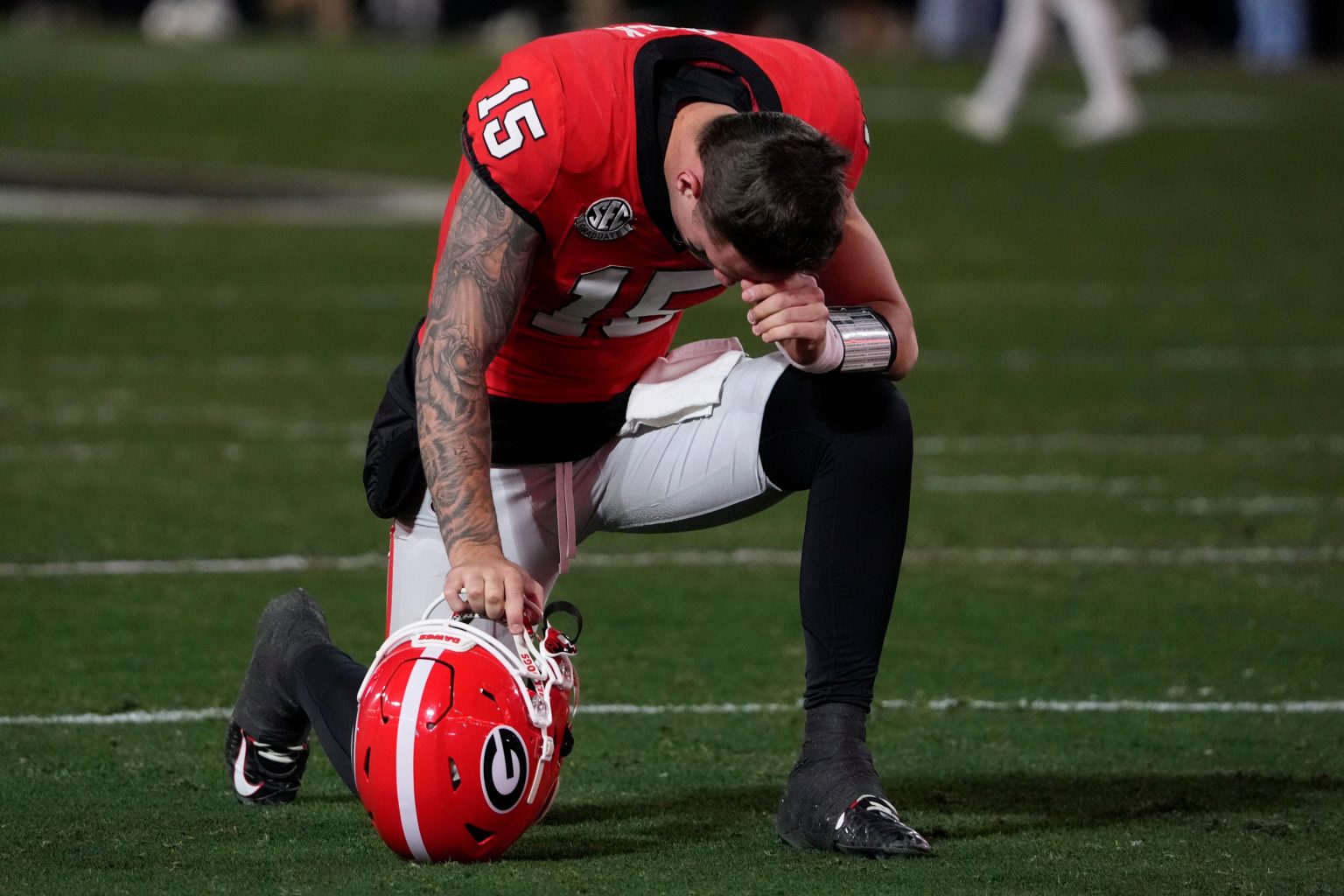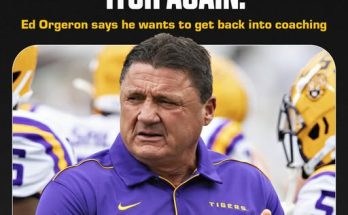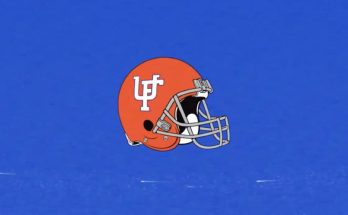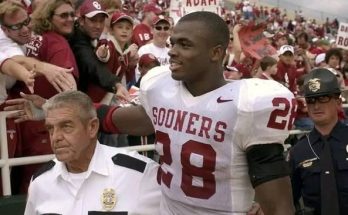In the world of college football, the quarterback position is the heart and soul of any program. Every season, teams rely heavily on their signal-caller to carry them through highs and lows, making or breaking the trajectory of a campaign. The University of Miami is no exception, and with the 2025 season on the horizon, there is one glaring question hanging over the team: who will lead them at quarterback?
Joel Klatt, a respected commentator and former college football quarterback, has weighed in on Miami’s biggest question mark heading into the new season. His verdict? Carson Beck, the highly-touted transfer quarterback from Georgia, is Miami’s wild card. Beck’s arrival at Miami has sparked significant excitement among Hurricanes fans and analysts alike, but it has also raised eyebrows due to the uncertainty surrounding his ability to fit into Miami’s high-pressure system.
The story of Carson Beck is one that captures the essence of college football’s ever-evolving landscape. After spending several seasons at Georgia, where he was a key part of a championship-winning program, Beck now finds himself facing the challenge of transferring to a new environment in the hopes of cementing his legacy as one of the nation’s top quarterbacks. However, Miami’s football program, which has been seeking a return to prominence for years, presents its own set of challenges. Klatt, known for his in-depth analysis and sharp insights, points out that while Beck brings tremendous talent to the table, the true question remains whether he can meet the lofty expectations that accompany such a move.
Klatt’s observation about Beck being Miami’s “wild card” is multifaceted. He recognizes that Beck is not only a player with immense potential but also one who carries the weight of Miami’s future on his shoulders. The Hurricanes have struggled to find stability at quarterback in recent years, with inconsistent play under center hindering the team’s progress. With the 2025 season on the line, Miami is hoping that Beck can be the catalyst that propels them to new heights. Yet, as Klatt points out, the road to success is never straightforward, and Beck’s ability to adjust to Miami’s offensive system and lead a talented but volatile team will be pivotal.
A key factor in the Carson Beck saga is his background at Georgia, where he spent several years as a backup quarterback before getting a chance to start. Beck was a part of a Georgia program that dominated college football, winning national championships and consistently competing at the highest level. His experience in one of the country’s most successful programs certainly gives him a leg up in terms of preparation and mindset. However, Klatt emphasizes that there is a significant difference between being a backup on a championship team and being the starting quarterback at a program that is still trying to find its footing.
Miami has the talent to compete at a high level, but they lack the consistent play at quarterback that is necessary to elevate them into the elite tier. Beck, with his strong arm and ability to make all the throws, has the physical tools to be a star. But whether he can adapt to Miami’s offensive philosophy, develop chemistry with his receivers, and navigate the pressures of being a transfer quarterback in a city like Miami is the true test. As Klatt notes, Miami has a lot of talent around Beck, but it’s up to him to bring it all together.
Klatt’s assertion that Beck is Miami’s wild card is not only about his potential to be a star but also about the uncertainty surrounding his fit within the program. While Beck is undoubtedly talented, the expectations on him are immense. He is stepping into a program that has underperformed in recent years, and the pressure to deliver will be intense. Miami fans, who have been waiting for their program to return to its former glory, will be watching closely, and any missteps by Beck could lead to increased scrutiny.
Another layer to the conversation is the impact of the coaching staff. Miami’s head coach, Mario Cristobal, is a man known for his meticulous approach to building a successful program. After arriving in 2021, Cristobal has worked tirelessly to recruit top-tier talent and create a winning culture. The addition of Beck is part of Cristobal’s larger plan to elevate Miami back into the national spotlight. However, the relationship between Beck and Cristobal will be a key element of whether the quarterback can succeed in his new environment. Klatt highlights that a quarterback-coach dynamic is often a defining factor in a player’s ability to thrive, and Miami’s success in 2025 will likely hinge on how well Beck and Cristobal mesh both on and off the field.
It’s also important to recognize the broader context of the college football landscape, which has changed dramatically in recent years. The rise of the transfer portal has created opportunities for players like Beck to find new homes, but it has also introduced a level of unpredictability. No longer do players have the luxury of spending four years developing within the same program. Now, transfers are expected to make an immediate impact, and the pressure on Beck to do so is undeniable. Klatt’s analysis reflects the reality of modern college football: talent is no longer confined to the traditional powerhouses. A quarterback like Beck, with his pedigree from Georgia, can have a massive impact on a program like Miami if he can quickly adapt to his new surroundings.
One of the most intriguing aspects of Beck’s transfer to Miami is the competition he faces. While Beck has the pedigree and experience, he is not guaranteed the starting job. Miami has a number of quarterbacks on the roster, each vying for a chance to lead the team. The competition will push Beck to perform at his highest level, but it also means that his performance in camp and early games will be scrutinized closely. In this context, Klatt’s observation about Beck being Miami’s wild card takes on even greater significance. The quarterback position is perhaps the most volatile in all of sports, and one bad performance can quickly lead to a change at the helm. The pressure on Beck to deliver in his first season with Miami will be immense, and his ability to handle that pressure will define his legacy.
In many ways, Beck’s situation is emblematic of the challenges that come with the transfer portal era. Players can no longer expect to have a lengthy adjustment period. If they want to succeed, they need to hit the ground running. For Beck, this means quickly learning Miami’s offense, getting on the same page with his new teammates, and managing the pressure that comes with being the face of a program in search of a resurgence. Klatt’s assessment of Beck as a wild card underscores the uncertainty that surrounds the quarterback position, as well as the tremendous potential that lies within Beck’s skill set.
Ultimately, the question surrounding Carson Beck is whether he can step up and live up to the high expectations placed upon him. As Klatt points out, he has all the tools to be successful, but he must prove that he can be the quarterback Miami needs to return to national relevance. His journey will be one of the most fascinating storylines of the 2025 season, and whether he thrives or falters, his impact on Miami’s fortunes will be undeniable.
Beck’s potential is vast, and his arrival at Miami could be the spark that reignites the Hurricanes’ program. But in a city and a college football landscape defined by high expectations and intense scrutiny, the question remains: can Carson Beck fulfill the promise that comes with being Miami’s wild card?



